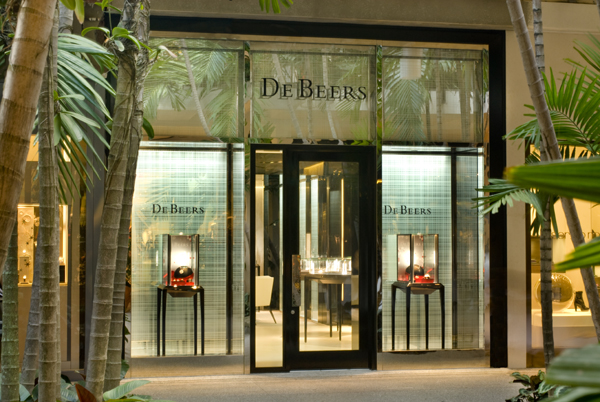|
RAPAPORT... Unity Marketing revealed that wealthy U.S. consumers are growing more nervous about their financial status and dramatically reduced spending in the second quarter. The research and marketing firm will release its detailed report, including the latest Luxury Consumption Index (LCI), on August 21.
In the interim, the group stated that it observed affluent consumers cut their luxury spending for the April through June period by 26.9 percent year on year. This level of spending was also down 8.2 percent against the first quarter, according to Unity Marketing's LCI. 
"The up-and-down trajectory of the LCI that we've seen over the past year measures continued uncertainty among affluent consumers who make up the heavy lifters in the overall consumer economy," said Pam Danziger, the president of Unity Marketing. "Looking back at over the past three years, we find that the luxury consumers, particularly the ultra-affluents, unleashed pent up demand for luxury indulgences during 2010, but since then affluent confidence, and their willingness to spend on luxury, has been constrained."
Danziger said that spending by ultra-affluents this past quarter dropped to its lowest level since 2008. ''If this key consumer segment for the super-premium luxury brands continues apace, many luxury marketers will have a hard time meeting high comparable sales goals this year," Danziger warned. Unity Marketing expects these challenges for luxury brands to continue for at least the next six months, especially as lower-income ''high earners not rich yet'' or HENRYs, have also reigned in their spending.
Danziger cited Coach as a brand that seriously overestimated HENRY customers' willingness to spend this year. Coach tried to eliminate coupon promotions tied directly to its discount outlets, which are the company's biggest source of revenue, and which attract HENRY customers looking to stretch their dollars. She concluded that such a misstep led to Coach reporting weak same-store sales growth in the quarter that ended on June 30, which then caused its stock to post its worst day on Wall Street since the 9/11 attacks.
"The number of people willing and able to pay a premium for luxury brands, like Coach, is getting smaller as this weak economy continues. Our latest survey reveals that the affluent consumers believe things are only going to get worse, before they get better," Danziger said.
Thomas Bodenberg, Unity Marketing's chief consumer economist, explained, "Several months back, market pundits told us that the 2007-2009 recession had run its course, and that it was only a matter of time before this event would have diffused into the consumer economy. However, this is not the case, borne out by consumer sentiment. Two factors are dominant: first is the interconnectedness of our global economy, as economic turmoil in Europe readily translates into uncertainty here. The second looming factor is the upcoming election, whose results will either drive or inhibit consumer sentiment and willingness to purchase."
Unity Marketing's LCI is based upon five key measures of luxury consumer confidence including their expectations for future spending on luxury, their personal financial conditions and their overall assessment of the economy as a whole. This quarter's LCI was conducted in mid-July, measured the sentiment of 1,271 luxury consumers who had an average income of almost $275,000; the average age of respondents was 44.8 years and their median net worth was $817,000.
|